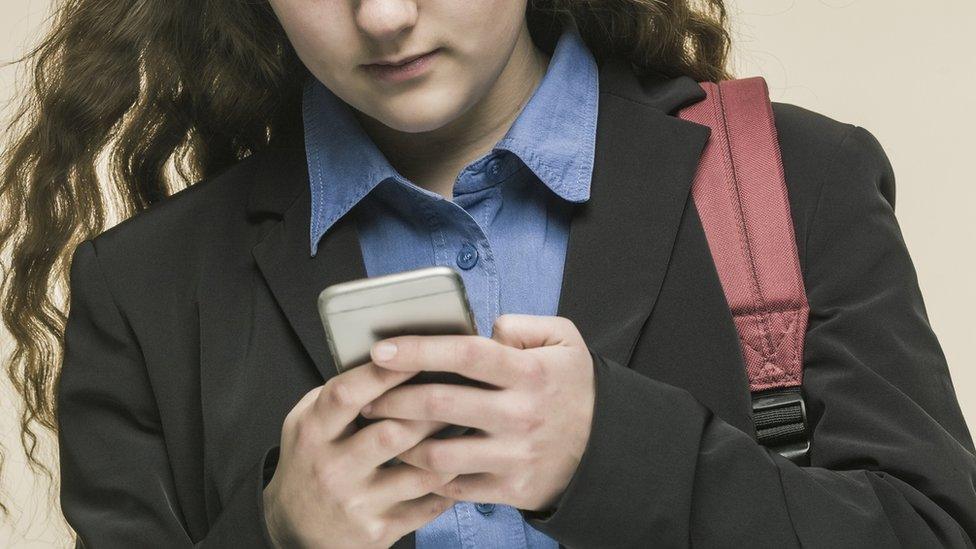Child abuse: Could tech devices be exposing children to grooming?
- Published

Children turn to online spaces to escape reality, often leaving them vulnerable says Barnardos Cymru
Young children are now more exposed to being groomed online due to a reliance on tech devices in lockdown, a charity has claimed.
The Internet Watch Foundation (IWF) found in 2021 child-uploaded content was up 374% on 2019.
It said material uploaded by seven to 10-year-olds had increased threefold.
Barnardo's Cymru warned children had become more trusting online because of home schooling and socialising over the internet during the pandemic.
The Welsh government said it was "committed to keeping children and young people safe".
Grooming is when someone builds a relationship, trust and emotional connection with a person so they can manipulate, exploit and abuse them.
Sharron Wareham, from Barnardo's Cymru, said: "Grooming has been historically presented as some kind of linear process, but what we know from working with lots and lots of children is that it's not actually the case."
She said children being more accessible online means they can suffer abuse with no-one physically in the room and that it is lot easier in an online space because identities can be hidden.
Ms Wareham added that online spaces have "normalised harassment and victim blaming" so when young children see it they "do not expect others to support or help stop things".
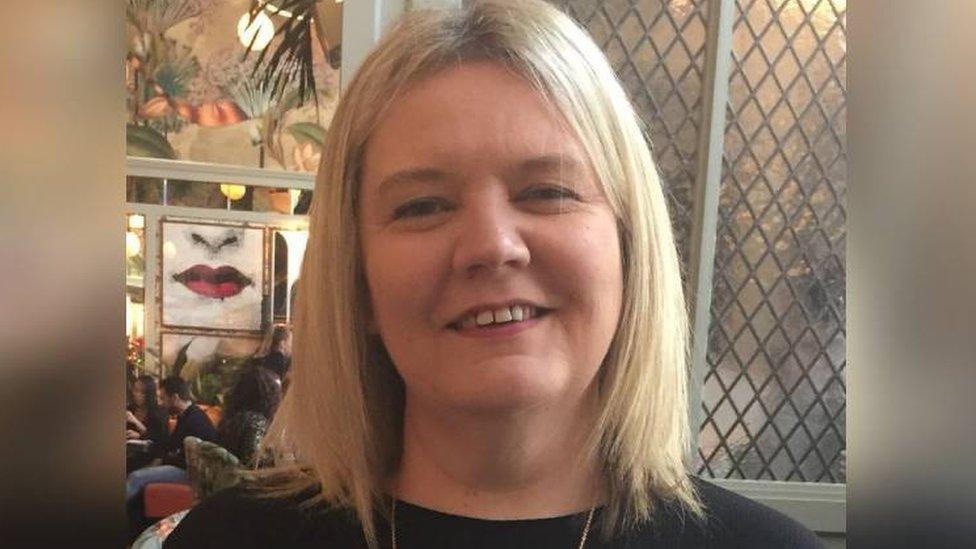
Sharron Wareham said Barnardo's Cymru had seen "younger and younger" children groomed online
Ms Wareham added they found that lockdown amplified feelings of isolation in children, particularly young boys figuring out their sexuality.
She said: "We have found that they use the online world when there is confusion around sexual identity.
"And one of the main reasons for that was because they felt that education and within formal setting schools, etc, was not inclusive of the LGBTQ+ community."
She said because of this they were more likely to be looking for connections with people.
Tricked by predators
Emma Hardy, communications Director at the IWF, said: "We have seen an extremely worrying rise in so-called self-generated material where children have been tricked by predators into abusing themselves over webcams.
"Even more frightening is the increase we have seen in material involving seven to 10-year-olds.
"We are seeing younger and younger children falling prey to these dangerous internet criminals. Children have been spending more time on the internet as a result of the Covid pandemic.
"In many ways, the internet has been a lifeline, but it has left children more vulnerable."
She added that "parents need to be aware that predators are working in this way" so they can have appropriate discussions with their children so they know they can speak out.
What kind of content was removed in 2021?
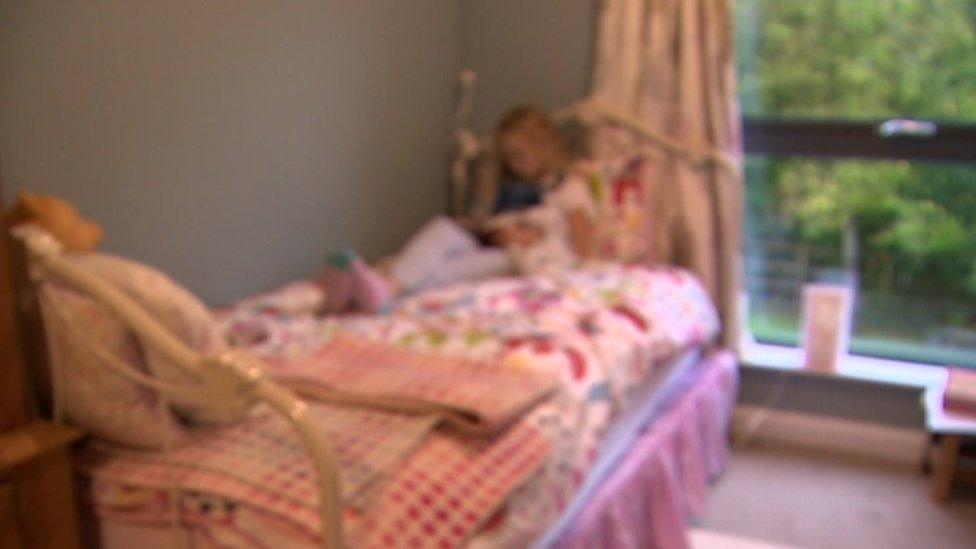
There has been an increase in the number of seven to 10-year-olds uploading sexually explicit content online, says the IWF
The IWF said lockdown has seen an increase in "self-generated material", which means content created using smartphones and tablets, and then shared online.
In some cases, children are groomed, deceived or extorted into producing and sharing a sexual image or video of themselves.
In 2021 the IWF:
Investigated 361,000 reports - up 21% from 2020
Took action against 252,000 URLs - up 64%
Had 27,000 URLS with self-generated sexual imagery of children aged seven to 10 - up 235%
Sometimes URLs contain thousands of images and videos of category A material, which is the most serious content.
'Parents need to be educated first'
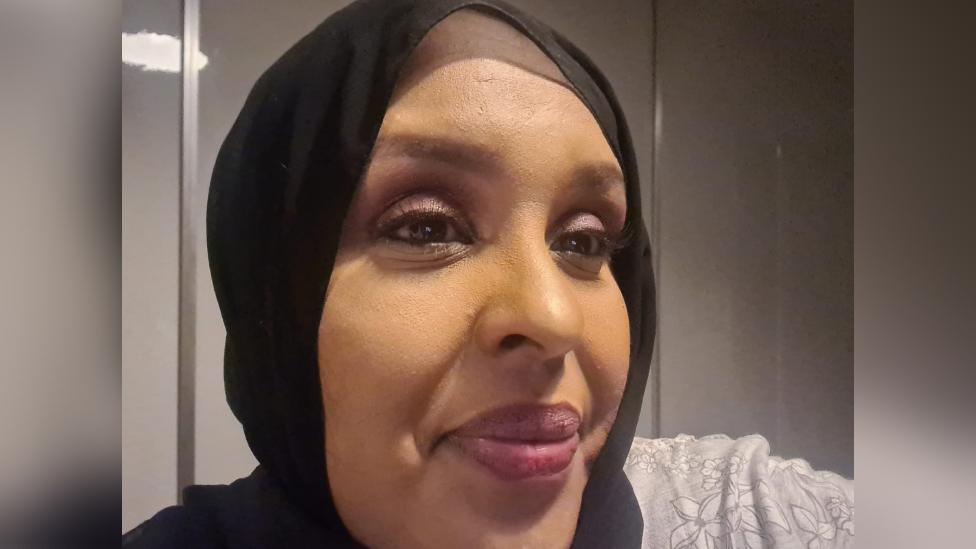
Samia Egeh says parents need training to know how to protect their children
Samia Egeh, from Cardiff, said parents need to be "up to date" with the online world in order to protect their children.
She has two teenagers and feels "very, very alarmed" that her children could be so unsafe online, especially after the reliance on it for education during the pandemic.
She said: "I tried to get myself up to date, even though I'm not perfect, and children are much more clever than us as parents when it comes being online.
"But I do try and work with my children and say parental controls are there for a reason and it's just to keep them safe."
She said she has an understanding with her teenagers that is all done on "a trust basis" as she does not want them to miss out.
She said she limits screen time and having devices in their rooms when she can, but "parents can only do so much".
"Parents need courses and they need to be updated as things are changing all the time," she said.
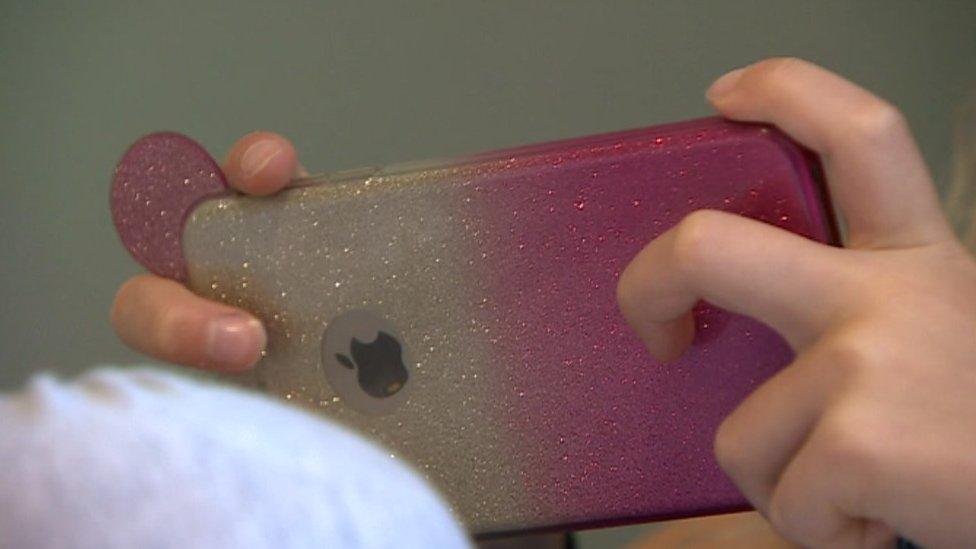
In 2021 material uploaded by children themselves was up 374% on 2019, says the IWF
The Welsh government became the first government to join with the IWF in October, external to help protect children.
Through the Hwb digital learning programme, external, it now offers children and young people in Wales additional support to spot the signs and take action against online grooming.
The platform now includes dedicated support pages, including bilingual materials from the IWF's Gurls Out Loud, external and Home Truths, external campaigns.
A spokesperson said: "We are committed to keeping children and young people safe online. Our action plan, external aims to enhance digital resilience in children and young people in education.
"Our online grooming prevention campaign, working with the IWF, aims to raise awareness of this issue and encourage parents and carers to talk to their children about the risks of being online."
The IWF recommends that if you have any concern about a child's welfare you should report it to the police and report it to them, external anonymously for it to be removed.
If you have been affected by any of these issues, look on BBC Action Line for more information and advice.
- Published3 October 2019

- Published18 October 2021
